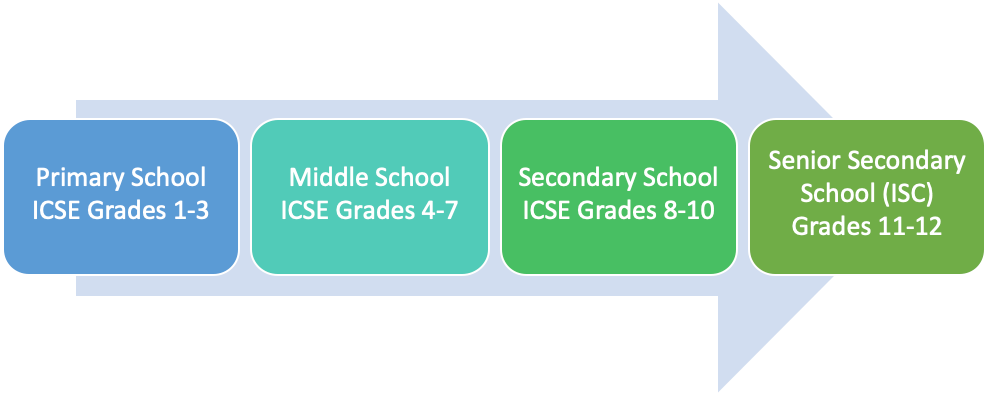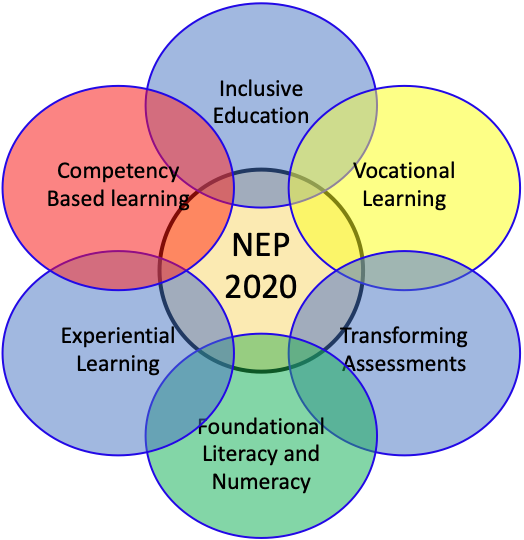CISCE CURRICULUM OFFERED @ DPSIS
DPS International School (DPSIS) is affiliated to the CISCE – Council for the Indian School Certificate Examinations, which conducts the Indian Certificate for Secondary Education (ICSE – Grade 10) examination and the Indian School Certificate (ISC – Grade 12) examination. The curriculum prescribed by the Council is offered from Grade 1 to Grade 12. The medium of instruction in the school is English and the scheme of studies is in accordance with the scheme laid down by the Council for the Secondary and the Higher Secondary stages.
Click here for curriculum publications. https://cisceboard.org/publications.html
CISCE Pathway: The Guiding Framework @ DPSIS

ABOUT THE COUNCIL
CISCE has been so constituted as to secure suitable representation of: Government of India, State Governments/Union Territories in which there are Schools affiliated to the CISCE, the Inter-State Board for Anglo-Indian Education, the Association of Indian Universities, the Association of Heads of Anglo-Indian Schools, the Indian Public Schools Conference, the Association of Schools for the ISC Examination and members co-opted by the Executive Committee of CISCE.
For more details: Please click here
THE COUNCIL'S MISSION
The Council for the Indian School Certificate Examinations is committed to serving the nation’s children, through high quality educational endeavours, empowering them to contribute towards a humane, just and pluralistic society, promoting introspective living, by creating exciting learning opportunities, with a commitment to excellence.
EXAMINATIONS
The Council for the Indian School Certificate Examinations conducts three examinations, namely, the Indian Certificate of Secondary Education (ICSE –Class X); The Indian School Certificate (ISC – ClassXII) and the Certificate in Vocational Education (CVE – Year 12). The subject choices and syllabuses prescribed for these examinations are varied and aimed at nurturing the unique gifts of individual pupils.
- THE ICSE (CLASS X)
[For more details see Regulations and Syllabuses booklet.]
https://cisce.org/examinations/
- THE ISC (CLASS XII)
[For more details see Regulations and Syllabuses booklet.]
Adherence to CISCE guidelines
At DPSIS, the Council’s guidelines regarding the maintenance of a high standard in English (including oral and aural English) is followed. The requirements pertaining to infrastructure (land, playgrounds, classroom, laboratory facilities, library facilities), safety measures, scholastic areas (internal assessments, promotion criteria, assessment guidelines, number of teaching hours, homework/classwork) and non- scholastic (SUPW: Socially Useful Productive Work and Co-Curricular Activities – indoor and outdoor), teaching staff qualifications, and other recommendations issued from time to time are all adhered to by the DPSIS management and teaching staff.
Delivery of the curriculum
The delivery of the CISCE curriculum at DPSIS is an infusion of CISCE regulations with internationally renowned best known 21st Century practices in teaching and learning. Planned activities within the curriculum enable students to identify their strengths, skills and ambitions so they may make informed choices that are best suited for them.
CISCE NEW EDUCATION POLICY 2020 (NEP 2020) (WIP)
The National Education Policy (NEP) 2020, envisions an education system rooted in Indian ethos, that contributes directly to transforming India, that is Bharat, sustainably into an equitable and vibrant knowledge society, by providing high-quality education to all and thereby making India a global knowledge superpower.
Various changes suggested by the NEP in this area, aim at transforming the system of school education in the country so as to create holistic well-rounded individuals who are equipped with the skills for the 21st Century.A common understanding of the recommendations of the NEP among all stakeholders is important for a smooth transition.
The CISCE has initiated the process of supporting schools for adopting/adapting the various changes recommended by the NEP including encouraging schools to commence use of and implementation of the NEP recommendations.
The resources provided under the focus areas aim to prepare stakeholders for the transition by
creating awareness and experimentation to be documented to increase the richness of the resources.
CISCE PATHWAY
The curricular and pedagogical structure of school education will be reconfigured to make it responsive and relevant to the needs and interests of learners at different stages of their development. The existing 10+2 structure of school education will be modified with a new pedagogical and curricular restructuring of 5+3+3+4 covering ages 3-18 years. (https://cisce.org/nep-2020/ )

The key areas of focus in NEP 2020:
- Competency Based learning
- Experiential Learning
- Foundational Literacy and Numeracy
- Inclusive Education
- Transforming Assessments
- Vocational Learning

WHY CISCE
The CISCE has excelled in the field of providing a high standard of excellence in education that is reflected in its affiliated schools established over a century ago who still maintain high ideals with traditional values.
- English forms the base of all communication in the CISCE’s global vision, this in turn leads to enhancement and development of strong linguistic skills that is a prerequisite on the global platform.
- CISCE being the child centric curriculum, DPSIS gives utmost priority to the “CHILD” to be creative and expressive learners and be imbibed with life skills that help in carving their own paths with an independent outlook.
- The curriculum is very comprehensive and broad-based, based on the Indian Ethos with a global vision. DPSIS has incorporated specifically designed Assessment and Evaluation tools to provide a sensitized approach to the overall teaching – learning experience.
- The curriculum inculcates a sensitive and compassionate spirit that is amply reflected towards it catering to the special needs of its students.
- Strongly believe in building a strong foundation.
- Equal focus – Language, Arts and Science
- More choice and freedom for students in deciding final subjects.
- Wide recognition of board results across colleges in India and abroad
- Good for competitive exams viz. IIT, IIM, CAT, SAT, GRE, TOEFL and GMAT.
- Weightage is given to projects/practical (Internal Assessment) *
Click here to know more https://cisce.org/why-choose-cisce/
INTERESTED IN OTHER CURRICULUMS
Thought Provoking Question
The Indian Certificate of Secondary Education Examination (ICSE) has been framed and designed as an Examination in general education through the medium of English. It is responsible for conducting the Indian Certificate of Secondary Education (ICSE) examination for Class 10. The ICSE curriculum offers a broad and balanced education for students of Grade 1 to Grade 10, encompassing a wide range of subjects, including languages, sciences, mathematics, social sciences, and humanities.
Students who have completed ICSE Grade 10 or its equivalent are eligible to choose ISC Curriculum. Students from other boards, other than ICSE have to apply for eligibility to the council. Upon approval, they will be offered the ISC curriculum.
• The ICSE has a Holistic Education approach.
• The curriculum focuses on in-depth understanding and application of concepts rather than rote memorization.
• English is the primary medium of instruction in the ICSE curriculum, and there is a strong emphasis on developing proficiency in the English language
• The curriculum integrates subjects to some extent, promoting connections between different discipline.









